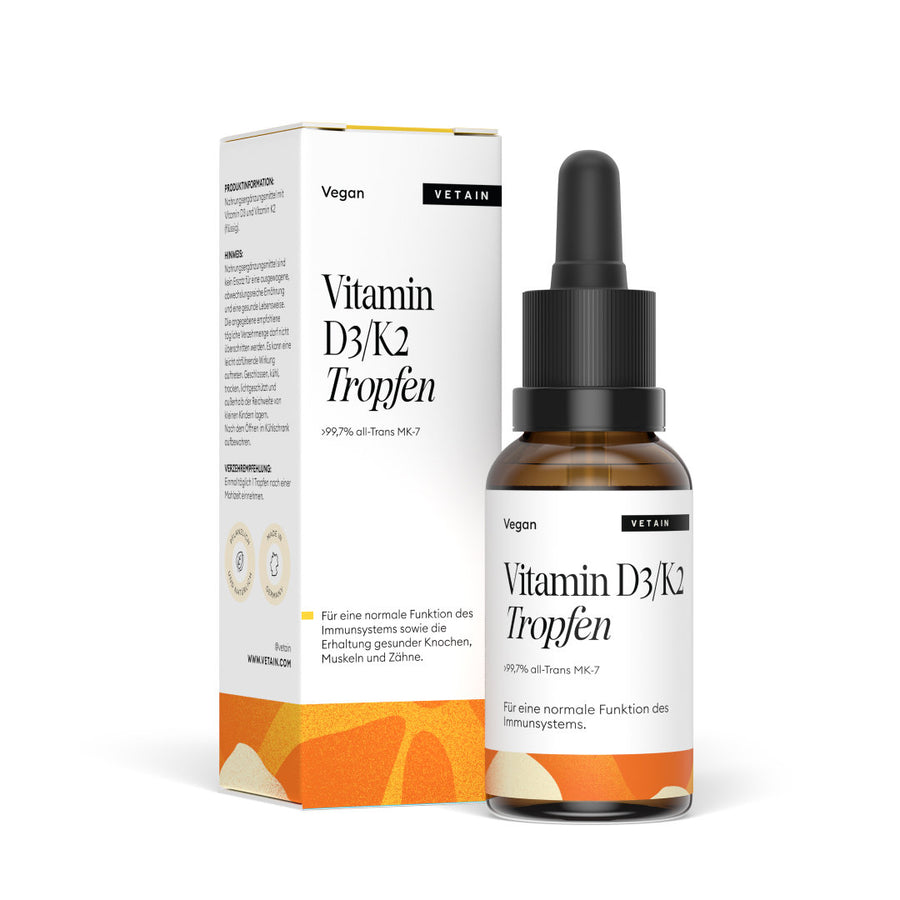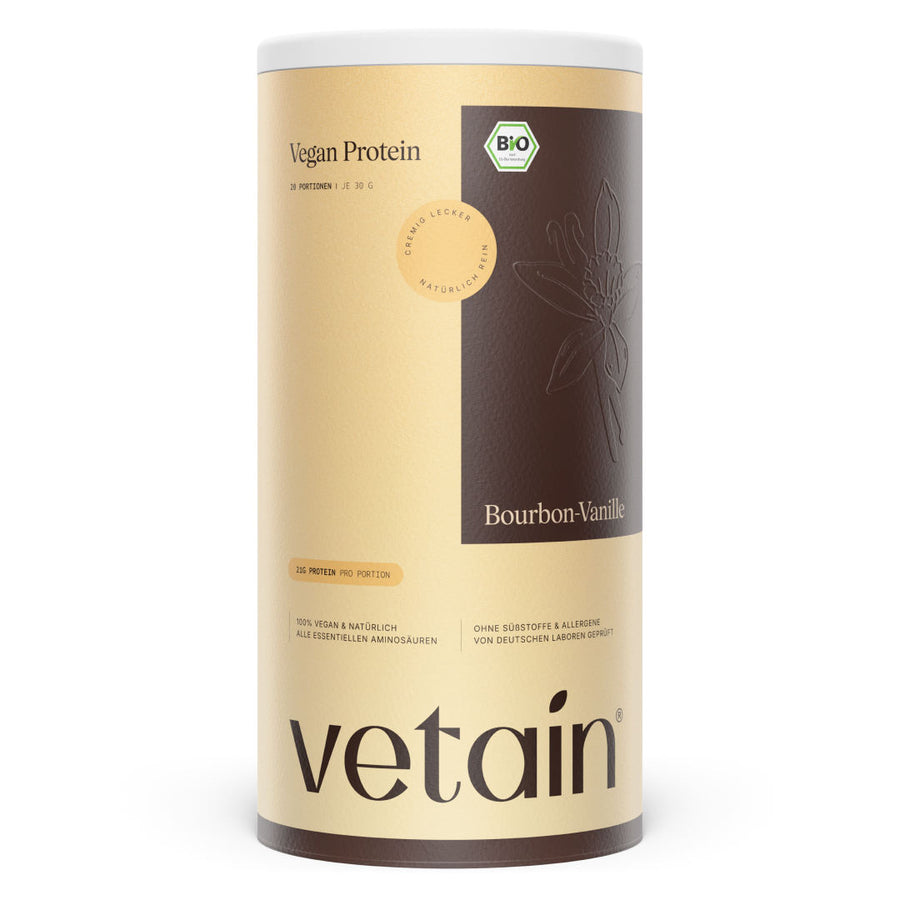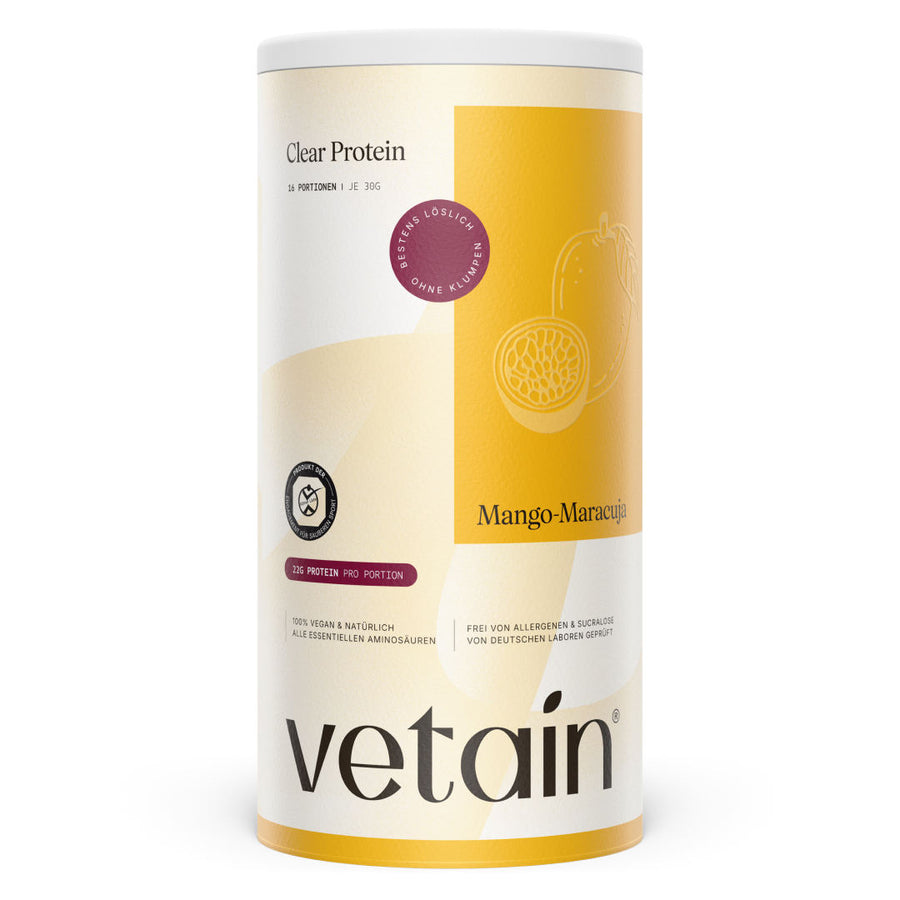Vegetarian diet = nutrient deficiency? What you often hear is not necessarily true. A vegetarian diet does not automatically lead to poor nutrient supply. Instead, you just need to pay a little more attention to the intake of certain vitamins and minerals.
Therefore, in a vegetarian diet, supplements can be an additional source of certain nutrients if the intake from food alone is insufficient. Which supplements you really need and how to find the perfect products for you – you’ll learn in the next few minutes.
Your knowledge to go: Vegetarian diet supplements
In a vegetarian diet, supplements can complement your nutrient intake.
Often, supplements are not necessary – much can be achieved with a balanced diet.
Critical nutrients in a vegetarian diet are vitamin B12, vitamin D, iron, omega-3 fatty acids, iodine, and zinc.
Supplementation of vitamin D and omega-3 fatty acids is interesting for many.

What is a vegetarian diet?
Just so we’re on the same page: the typical vegetarian diet is actually called ovo-lacto-vegetarian diet and means that you don’t eat meat or fish. Eggs and dairy products are still eaten – so you don’t have to give up your soft-boiled egg in the morning.
There are also other forms of vegetarian diets, such as ovo-vegetarian (eggs yes, dairy no) or lacto-vegetarian (dairy yes, eggs no).
In this article, however, we’ll only focus on the most common form: the ovo-lacto-vegetarian diet.
Enough about ovo and lacto – back to the topic of vegetarian diet and supplements.
Critical nutrients
If you cut out meat and fish, it can happen that you consume less of certain nutrients.
Which nutrients are critical in a vegetarian diet?
Vitamin B12
Vitamin B12 is mainly found in meat. It contributes to normal energy metabolism and helps reduce tiredness and fatigue. Honestly, I think I need a whole bucket of vitamin B12.
Vitamin D
Probably no surprise, right? Studies show that vitamin D is a critical nutrient for many people in Germany. The body produces vitamin D itself when exposed to sunlight. But since we often need an umbrella instead of a sunshade here, vitamin D supply can suffer. In vegetarian diets, it’s even more critical because one of the main sources (fatty fish) is missing.
Iron
Iron is often obtained from animal products, and animal protein is generally better absorbed than plant-based. But: there are good plant-based iron sources too. We’ll get to them later.
Omega-3 fatty acids
Omega-3 fatty acids are known to be found in fish. But what if fish is off the menu? EPA and DHA (two fatty acids) contribute to normal heart function with a daily intake of 250 mg – so it’s important to ensure we get enough.
Iodine
Iodine is generally a critical nutrient. In Germany, it’s recommended to use iodized salt and foods made with it. In a vegetarian diet, another important iodine source (fish) is missing, so iodine intake requires special attention.
Zinc
Like iron, plant-based zinc is not absorbed as well as animal-based. Therefore, intake must be monitored to, for example, support normal immune system function.
Important: If you don’t eat a balanced diet or eat vegan, you may also miss out on other nutrients like vitamin B2 or calcium.
What to do?
Already filled your shopping cart with vitamins and minerals? Hold on! Supplementation is not always necessary. Following the motto: supplementation, not substitution – we should always first try to meet our needs through a balanced diet. Only if that doesn’t work should supplements come into play.
What else can we do besides supplements?
Include foods rich in critical nutrients in your meal plan! Legumes give you extra zinc, flaxseeds provide omega-3 fatty acids.
Use hacks: plant-based iron is absorbed better when combined with vitamin C-rich foods like peppers or lemon.
Fortified foods: this is the middle ground between natural nutrition and supplementation. For example, some foods are fortified with vitamin D.
Let’s go through the nutrients one by one so you know exactly whether you need supplements in your vegetarian diet.
Vegetarian diet: supplements or balanced nutrition?
Vitamin B12
Supplementation can be useful if you don’t eat enough eggs or dairy!
Vitamin B12 is found in foods like eggs and dairy. One egg already covers a quarter of your daily needs, 250 ml of milk another quarter.
The best sources for you:
Eggs
Milk and dairy products (e.g., cheese, yogurt)
Fortified foods
Vitamin D
Supplementation useful for many!
Especially in winter, supplementation is often unavoidable.
The best sources for you – besides sun exposure:
Egg yolk
Butter and full-fat dairy (note: low levels)
Fortified products
Iron
Supplementation only with medical advice!
Many foods are rich in iron and can cover your needs in a vegetarian diet without supplements. Important: always combine plant-based iron sources with vitamin C for better absorption.
Thinking about supplementing anyway? Be careful: always consult a professional before taking iron supplements.
The best sources for you:
Legumes (e.g., lentils, chickpeas)
Whole grains
Eggs
Omega-3 fatty acids
Supplementation useful for many!
Foods like flaxseeds or chia seeds are rich in omega-3. But let’s be honest: it can be tricky to eat enough of these daily. After all, you don’t have chia pudding or flax porridge every day. Vegetarian supplements from algae oil can be a practical option.
The best sources for you:
Flaxseeds (freshly ground) & flax oil
Chia seeds – try this chia pudding with mango
Walnuts
Iodine
Supplementation only for certain groups (e.g., pregnant women)!
For most people, iodized table salt is perfectly sufficient. Extra supplementation is only recommended for specific groups.
The best sources for you:
Iodized table salt
Milk & dairy
Seaweed (careful: risk of overdose!)
Zinc
Supplementation usually not needed!
Although there are many vegetarian zinc sources, there’s a catch: phytates in plant foods can inhibit zinc absorption.
The best sources for you:
Cheese (e.g., Emmental)
Whole grains & legumes
Nuts & seeds
Do vegetarians need supplements?
Bottom line: do vegetarians need supplements? Some, like vitamin D or omega-3 fatty acids, are generally recommended. Others depend on your individual diet. Track your intake for a few days with an app – if you notice a gap, try adjusting your diet first. If that’s not enough, supplements may be useful.
Important: all info in this article applies to healthy adults with a balanced diet.
Vegetarian diet in sports
Vegetarian diet and sports – do they go together? While critics claim you need meat to succeed, vegetarian or even vegan top athletes prove otherwise. Good news for us!
Make sure your body gets enough nutrients. Proteins are especially important in sports, as protein contributes to muscle growth and maintenance. Besides eggs, legumes can also provide protein.
Our tip: protein products can also count as supplements in a vegetarian diet. For example, plant-based protein powders are a convenient protein source.
%-product_content-%
Find your supplements
Now you know which supplements you may need and why they matter in a vegetarian diet. But how do you find good ones?
Here’s your guide: supplements for vegetarians
What do you really need? Identify the nutrients that matter to you. There are supplements made for vegetarians, but they often contain a random mix you may not need.
Check if the product is vegetarian or vegan. Labels usually tell you. Otherwise, read the ingredient list or ask the manufacturer.
Check the composition. Many products contain fillers or too much/too little of certain nutrients.
Research the company. Look at their practices and values. If sustainability matters to you, make sure it’s genuine and not just greenwashing.
Finding good supplements on a vegetarian diet can be tricky. That’s why we aim to create clean and high-quality supplements for everyone.
%-split_content-%
Conclusion: what should vegetarians supplement?
In a vegetarian diet, supplements can be very important and complement your nutrient intake. But often, a balanced diet is enough – and saves money too!
Know your needs and get to know your current diet: do you eat enough fruits and veggies? How about legumes? And are nuts and seeds part of your daily routine? The better you know yourself, the better you’ll know which supplements you need.
Literature & sources
Bollhöfer, M. (2012). Vegetarismus (Teil 1). Bedeutung und Definition des Vegetarismus. In: Ernährungs Umschau, 58(2).
Bollhöfer, M. (2012). Vegetarismus (Teil 2). Bedeutung, Formen und ernährungsphysiologische Beurteilung. In: Ernährungs Umschau, 58(4).
Mensink, G.B.M.; Lage Barbosa, C. & Brettschneider, A.-K. (2016). Verbreitung der vegetarischen Ernährungsweise in Deutschland. In: Journal Of Health Monitoring, 1(2).
Any questions? Feel free to send me an email – I look forward to hearing from you! :)
The information shared in this article does not replace individual medical or nutritional advice.




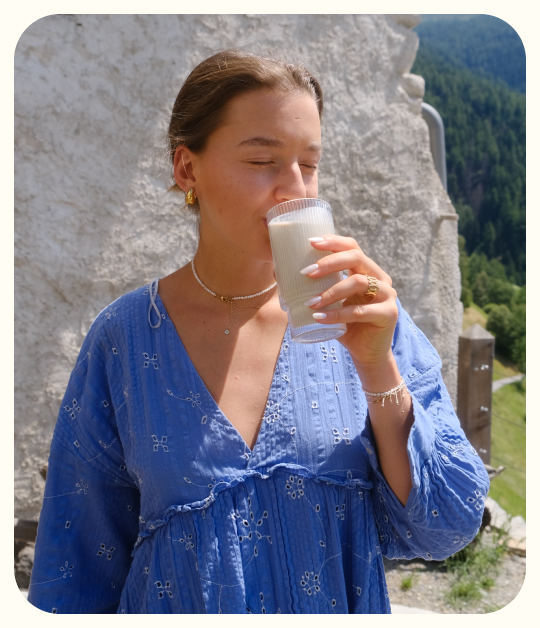
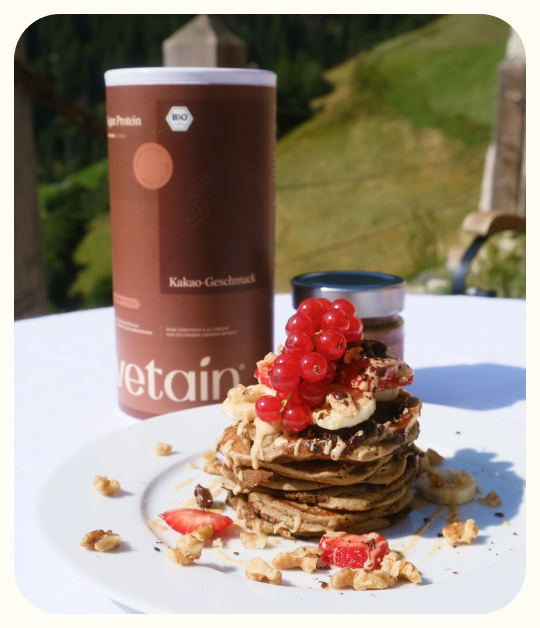


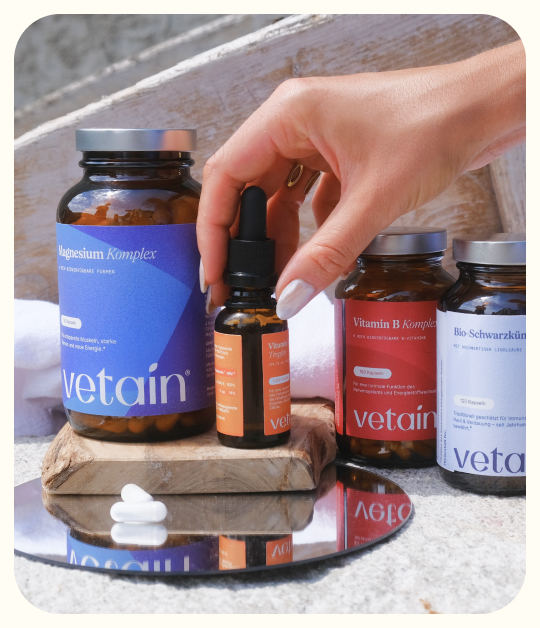






 8 Min
8 Min
 Zuletzt aktualisiert am 08.12.2025
Zuletzt aktualisiert am 08.12.2025

